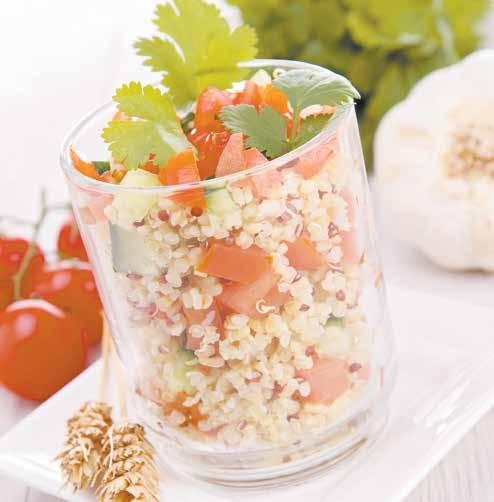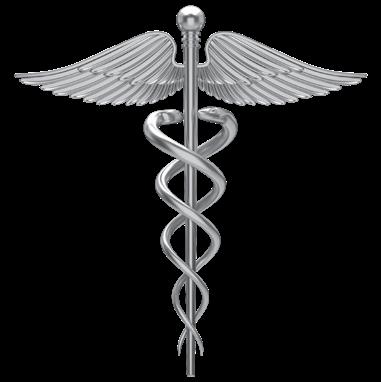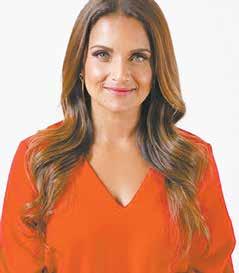
14 minute read
business spotlight
A Level Above Holistic Dentistry: Biological Dental Care
As an educated Biological Practice, Ann Arbors' Dentist provides ozone, lasers, remineralization, pH balance, biocompatibility, tooth meridians, airway management, myofunctional therapy and biofilm testing. The professional team is able to discuss root canals, mercury amalgams, periodontal disease, cavitations, BPA fillings, gluten in dentistry, preservatives and chemicals in dentistry, lead and heavy metals in dentistry, fluoride toxicity, erosion, oral cancer, apnea, TMJ disorders, orthodontics and other pertinent concerns.
Dr. Keith Dobracki is a doctor of dental surgery and is both a board-certified naturopathic physician and integrative biological dental medicine practitioner. He has studied at the Institute for Functional Medicine, the International Academy of Biological Dentistry and Medicine, the International Academy of Oral Medicine and Toxicology, American Dental Association, Holistic Dental Association and Academy of General Dentistry.
He says, “We set out on a mission to bring biological dentistry to Michigan. Our goal was simple: provide friendly, educational and comfortable care using only ingredients we would put in our families’ mouths. At home, we all eat organic and live clean lifestyles. Unfortunately, traditional dental care does always not mesh with our way of life. We are here to provide care for health-conscious individuals who scrutinize every ingredient and have a passion for optimizing their overall well-being. We provide the equivalent Dr. Keith Dobracki of functional and integrative care for the mouth with a 'biohacking' twist.
Patients can trust their products, methods and tools because they have all been researched in great detail to assure
He states, “The term ‘holistic dentistry’ has become a marketing buzzword and guarantees no actual accountability, education or certifications of the dentist. It is now commonly thrown around by dentists to get patients in the door rather than to provide holistic care. Our practice does not require insurance memberships and sees patients of all ages and for all clinical needs. Instead of throwing Band-Aids at recurring problems, such as simply filling for a cavity, our highly trained team looks to eliminate primary casual factors and provides accelerated coaching to prevent these problems from reoccurring.”
Dobracki says, “The future is bright. The population is recognizing toxicity contributors in our daily routines and environment. We are teaming up with functional and integrative physicians to provide a whole-body wellness plan. This will help us focus more attention on individual patient needs and be able to problem solve on a deeper level than ever before.”
During COVID-19 restrictions, they offer Zoom and phone consultations that allow one-on-one personalized interactions with trained health professionals allowing patients to ask questions about how to become more healthy.
they are biocompatible and promote a healthy lifestyle. The practice has won national and local awards for outstanding care and is extremely COVID-19 safe. “Patients love being heard by our doctors and actually having their primary concerns respected and addressed,” says Dobracki. “We take into account all of our patients' wishes, and our goal is to educate patients' in order to promote prevention and minimal invasive care. The mouth is the gateway to the body and is often overlooked. Small issues often develop into big problems when not properly addressed.” Ann Arbors' Dentist is located at 606 W. Stadium Blvd., in Ann Arbor. For appointments and more information, call 734-7476400 or visit AnnArborsDentist.com. See ad page 5.
Live a HeartHealthy Lifestyle
Integrative Cardiologists on Preventing Heart Disease
by Ronica O’Hara

Cardiology has made mind-boggling advances in efficiently repairing everything from clogged arteries to floppy mitral valves and even replacing the entire failing heart itself. Yet the stubborn fact remains that almost half of all Americans suffer from cardiovascular disease, killing one in four of us, and those numbers are rising. Research shows that simple lifestyle changes can prevent 80 percent of these deaths, but many cardiologists typically reach for a prescription pad rather than explore diet, exercise and other prevention options with their patients.
“Medicine can be life-saving, but optimal heart health can’t come from medicine alone,” says cardiologist Stephen Devries, co-author of Integrative Cardiology. “There is a common belief among many physicians that patients generally don’t want to make lifestyle changes—an assumption that is often dead wrong and refuted by surveys of patients that show that the majority are looking to do exactly that.”
Los Angeles restauranteur and musician Gianni Neiviller, 54, is such a case. When he found holistic cardiologist Cynthia Thaik three years ago, he had already endured four major surgeries for gut illnesses; was suffering from obesity, high blood pressure, anxiety and depression; and was heavily abusing alcohol and marijuana. Thaik ordered tests that uncovered sleep apnea, and she encouraged him to turn to an all-organic diet, take vitamin and mineral supplements, exercise and practice mindfulness and meditation.
“At first it was all fairly hard, but as I started losing the pounds, my mind became more clear, and little by little, it all started getting a bit easier,” Neiviller says. He lost 86 pounds within a year, got sober and ceased taking blood pressure medication and using a sleep apnea machine. He now walks six miles a day; practices a hybrid regimen of qigong, yoga and meditation; and is switching to a holistic health career. “When people try to push my buttons, they rarely succeed these days,” he smiles.
Rebounding into vibrant health is what integrative cardiologists like Devries and Thaik strive for. Also known as preventive or holistic cardiologists, they focus on guiding patients to change long-held, harmful, physical and emotional practices. Although they are comparatively few in number—probably no more than 100 nationally—these doctors are vocal and influential, imparting valuable advice about preventing and reversing heart disease through daily lifestyle choices.
Heart-Happy Eating
Substantial research affirms that one major line of defense against heart disease is what we put into our mouths every day, yet only 8 percent of cardiologists consider themselves capable to give nutritional advice, a survey showed. To counter that, Devries co-founded the Gaples Institute, a Naperville, Illinois, nonprofit that offers free nutritional training online to the public and nutritional accreditation for medical clinicians. Devries, who trained at Dr. Andrew Weil’s Center for Integrative Medicine at the University of Arizona, lectures internationally and recently authored What Your Doctor May Not Tell You About Cholesterol. “People have a lot more power over their heart health than they realize,” he says.
According to Devries, the name of a diet is not as important as the anti-inflammatory foods it should contain, such as “a wide variety of vegetables and fruit, plenty of beans, whole grains in place of refined, minimizing or eliminating meat (especially processed meat like bacon and sausage), minimizing added sugar (especially from sugar-sweetened beverages) and using small amounts of the most healthful oils, like extra-virgin olive oil.” And the evidence is increasing, he says, of “minimizing or eliminating animal products and getting most or all of your protein from high-quality plant sources like beans, tofu, whole grains and nuts. Fish is one exception for which there is good evidence.”
He’s backed up by a November 2020 study of 220,000 adults published in the Journal of the American College of Cardiology. It concludes that those with diets high in red and processed meat, refined grains and sugary beverages had a 46 percent higher risk of heart disease and a 28 percent higher risk of stroke compared to those consuming anti-inflammatory diets rich in green and yellow vegetables, whole grains, coffee and tea.
Devries suggests that gradual, incremental changes to the diet may be easier than abrupt and dramatic choices. For example, he might recommend switching from sugary soda to flavored seltzer first, then trying lemon water and black tea with milk before
opting for plain, green tea. Sipping a cup of green tea at least every other day reduces the risk of heart attacks and dying of heart disease by one-fifth, Chinese researchers report in the European Journal of Preventive Cardiology.
Powerful Supplements
As a young cardiologist frustrated by the revolving-door nature of his patients, Stephen Sinatra came upon an obscure 1982 study of coenzyme Q10 (CoQ10) that he realized could have saved the life of a favorite patient. This catalyzed his intensive studies into nutrition and bioenergetics that produced 17 books, including the bestselling Reverse Heart Disease Now and The Sinatra Solution. He helped formulate the new field of metabolic cardiology that proposes preventing and treating cardiovascular disease with nutraceuticals to improve energy production in heart cells.
In addition to suggesting a high-potency, multi-nutrient, fish oil, magnesium and vitamin C for prevention, he recommends four key nutrients that produce and use adenosine triphosphate (ATP), the body’s basic cellular fuel: YCoQ10 is synthesized in the body, but declines with age and statin use. It protects from the free radical damage linked to inflammation. Dosage: 90 to 250 milligrams (mg) daily for prevention, 180 to 360 mg for hypertension and 300 to 600 mg for heart failure. YL-carnitine ferries fatty acids to be oxidized to make ATP and moves toxic metabolites out of heart cells. Dosage: 1,000 to 1,500 mg in divided doses to prevent deficiency and up to 3,000 mg for heart disease. YMagnesium, required in all reactions involving ATP, is depleted by some gastrointestinal medications and diuretics. Dosage: at least 400 mg. YD-ribose is a naturally occurring sugar derivative of ATP that hastens energy regeneration. Dosage: five to seven grams (gm) daily as a preventive, seven to 10 gm daily for heart failure. In other nutrient news, adults that took glucosamine/chondroitin every day for a year or longer had a 65 percent reduction in cardiovascular-related deaths, reports West Virginia University researchPreventive cardiologist Joel Kahn, the author of Your Whole Heart Solution and The Plant-Based Solution, says that lab tests typically prescribed by cardiologists and other doctors are inadequate. “Standard lab tests have not changed in 30 to 40 years, but science has,” he says. “For example, inflammation is now understood to be a fundamental process for most chronic diseases like heart disease and cancer. A simple lab test, hs-CRP, is available to measure inflammation. Very few doctors add this to their panel. When it is high, it leads to a search for why there is inflammation and diet, lifestyle and other measures to resolve it.”
After 25 years as a cardiologist treating heart-attack emergencies, Kahn, who is vegan, went back to college to study preventive cardiology and set up the Kahn Center for Cardiac Longevity, in Bingham Farms, Michigan, which focuses on dietary counseling and preventive screenings. His list of “must have” tests includes: YAdvanced cholesterol panel for a breakdown of LDL-cholesterol particle number and size, which is highly predictive of cardiovascular problems. YLipoprotein(a) cholesterol to detect a risk-elevating genetic form of cholesterol that’s present in about 20 percent of those tested. YHigh-sensitivity C-reactive protein (hsCRP) to identify inflammation of blood vessels. YHemoglobin A1c (HbA1C) to obtain the three-month measure of sugar in hemoglobin, a marker of both diabetes and heart disease. YVitamin D to identify deficiencies linked to a higher risk of hypertension, heart failure, angina and heart attacks.
Move It or Lose It
The American Heart Association recommends 150 minutes per week of moderate-intensity aerobic activity (brisk walking, water aer-
Solutions for Pain
AND A PATH TOWARD HEALTH & WELLNESS
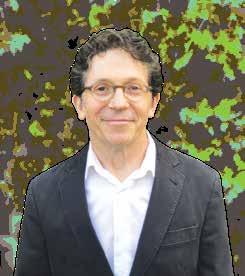
Dr. Robert Krasnick has been performing regenerative procedures for over 20 years, including Prolotherapy, Platelet Rich Plasma, and Stem Cell Therapy. In addition, Krasnick Regenerative Medicine is offering IV (intravenous) nutrient infusions, including Myers’ Cocktail, Glutathione, and NAD+. Also offered is UBI (Ultraviolet Blood
Irradiation) combined with Ozone therapy. These treatments are designed to support your immune system, decrease inflammation and promote health and healing. If you have chronic pain and are looking for natural alternatives or interested in promoting your health, call today for a free consultation.
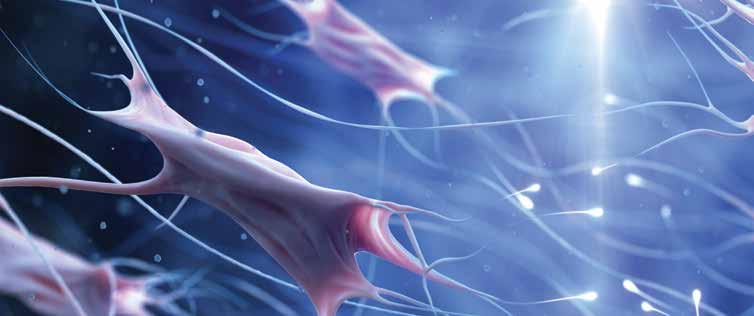
210 Little Lake Dr Ste. 8, Ann Arbor (734) 585-5653 • KrasnickRegen.com
“Prolotherapy a wise choice. I am completely healed,
and good as new!” – Self-Verified Patient, 01/20/20
EBOO (Extracorporeal Blood Ozonation, Oxygenation, and Filtration): Offers the most efficient treatment in the world to date!
At American Regenerative Clinic, we are proud to announce that we now offer Extracorporeal Blood Ozonation, Oxygenation, and Filtration (EBOO)—We are the only Midwest location to offer it!
The results of using ozone therapy, especially systemic ozone, in treating illness and infection are well documented. While several other methods of ozone therapy are available, EBOO offers the most efficient treatment in the world to date.
EBOO procedure includes using a dialysis filter to clean blood from the debris of destroyed germs, heavy metals, fungus, etc., and to ozonate the blood in stages. Blood is drawn from one patient’s vein, going through the filter, gets ozonated, and then reintroduced into the patient via another vein. The entire process happens within a closed system to eliminate the possibility of contamination in just under 1 hour!
There is practically no contraindications for the procedure. No Herxheimer’s reaction was reported. Patients are able to drive home. Most of them feel better just after the first procedure. Average number of recommended procedures per course is 3-4, once a week. It could be repeated every 3-6 months, depending on course of disease. It could be used not only for treatment, but also for improving daily wellbeing and even athletic performance.
Dr. Andrey Lutskovsky
Make your appointment today, we are the only location in the Midwest that offers EBOO!
31000 Telegraph Rd., Ste. 140 Bingham Farms AmericanRegen.com Contact@AmericanRegen.com We provide free consultation, and package deals.
— Advertorial —
obics, gardening, tennis, dancing) or 75 minutes of vigorous activity (running, jumping, swimming laps), as well as muscle-strengthening activity (weights) at least two days a week.
Only 20 percent of adults exercise for the full 150 minutes per week, which may be why physical inactivity is a major factor in an estimated one-third of heart disease deaths. “I like to frame it as ‘being active’, because exercise sounds onerous,” Devries says. “Even a small amount of activity goes a long way—walking at a gentle pace 30 minutes a day confers very significant benefits. Up to a point, more can be better, but only for some people, and only to a point.”
Even moving a few minutes daily can add up. Doing 12-minute bursts of vigorous exercise favorably impacts 80 percent of the metabolites that govern such functions as oxidative stress, inflammation and vascular reactivity, reports a new study in Circulation. Just one hour a week of strength training significantly lowers the risk of heart attack, stroke and heart disease death, another study found. And simply holding thigh and calf stretches for 45 seconds for a total of five minutes daily improved arterial blood flow, reports a study in the Journal of Physiology.
The Emotional Heart
As a child in Myanmar, Thaik witnessed hands-on healing at a clinic she visited with her physician mother, but holistic care only entered her life after 20 years of practice as a frustrated cardiologist, when she was laid low by severe anemia that required transfusions and surgery. Today, the Harvard-trained cardiologist is the author of Your Vibrant Heart and founder of the Holistic Heart Healing Center, in Los Angeles, which integrates the medical model with lifestyle strategies and approaches like homeopathy and acupuncture.
“I very much believe that we are both physical beings and energetic or spiritual beings. Our physical makeup is closely intertwined with our mental and emotional makeup,” Thaik says. She counsels patients to practice the following: YMindfulness. “A mentor of mine, (life coach) Mary Morrisey, taught me to avoid the three Cs—complaining, comparing or criticizing. If you attempt to do this for even an hour, you will find that it is actually a hard task. Practicing this allows us to be acutely mindful of our thoughts.” YGratitude. “I wake up every morning and before my feet hit the floor, I make this statement five times and fill in five different answers: ‘I am so happy and grateful now that ...’” YReleasing. “I believe the most important ingredient to health and healing is the ability to release—to forgive self and others, to let go and abandon all of our negative thoughts, our self-limiting beliefs, our notions of right and wrong, our feelings of injustice and being wronged.” She advises, “When we can abandon all these beliefs and allow ourselves to float or drift unimpeded—imagine yourself on a tube in a lazy river—that is when healing within our bodies begins, when our parameters of stress and the hormones and neurotransmitters associated with stress start to down-regulate, and we can literally feel a wave of relaxation passing through our bodies. This will lower our heart rate, blood pressure, adrenaline and cortisol levels, thereby mitigating our risk of a heart attack or stroke.” Ronica O’Hara, a natural health writer, can be contacted at OHaraRonica@gmail.com.



